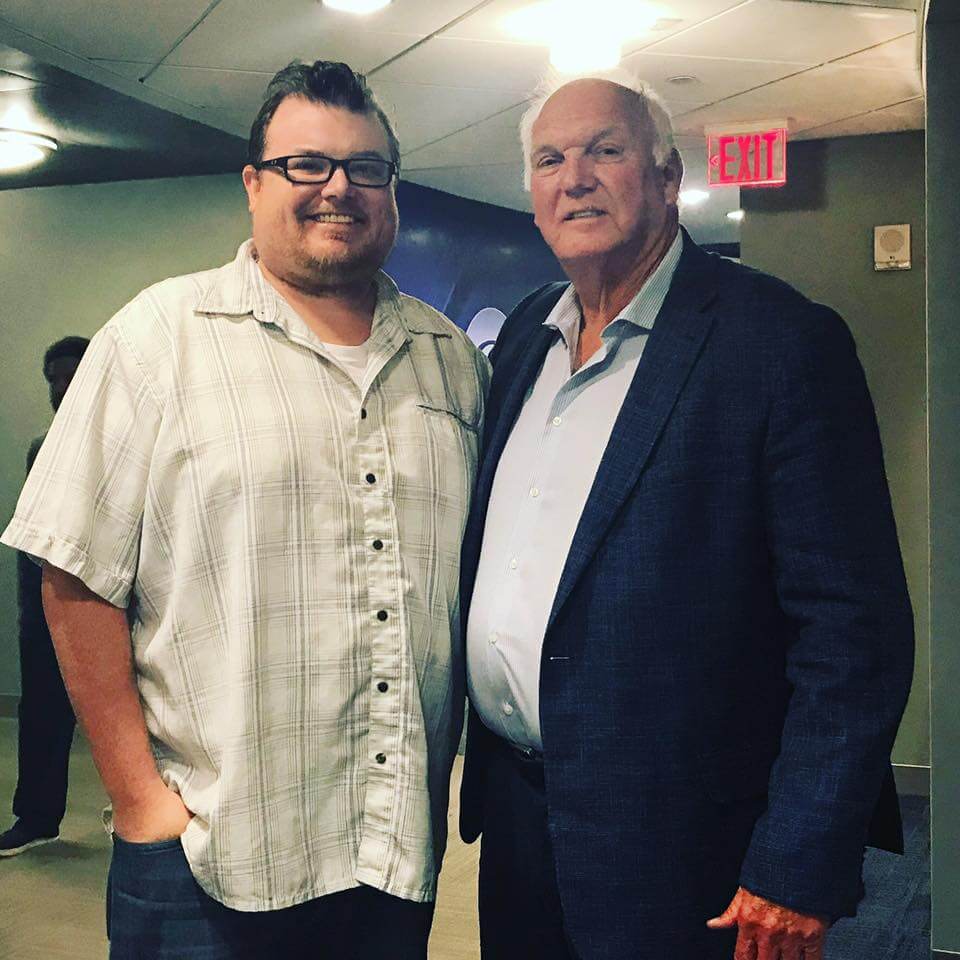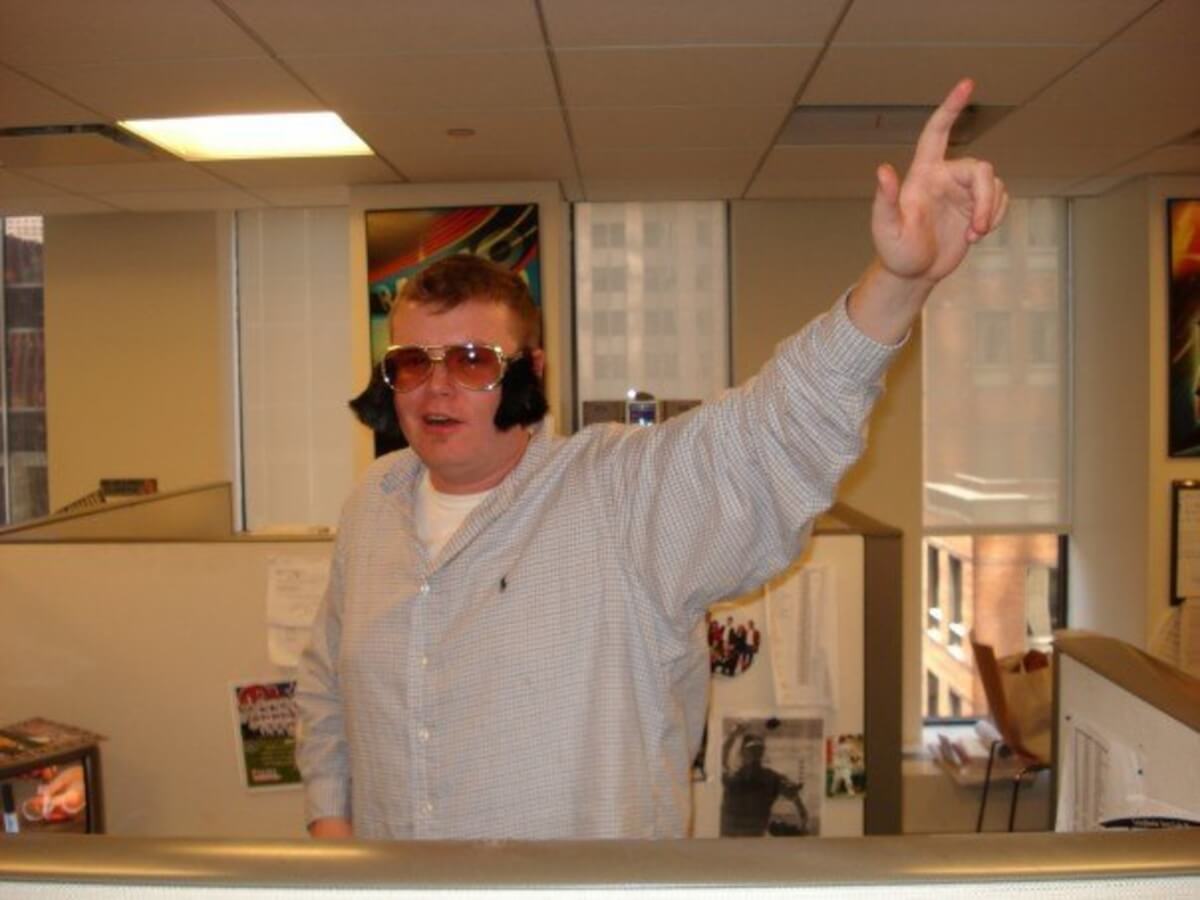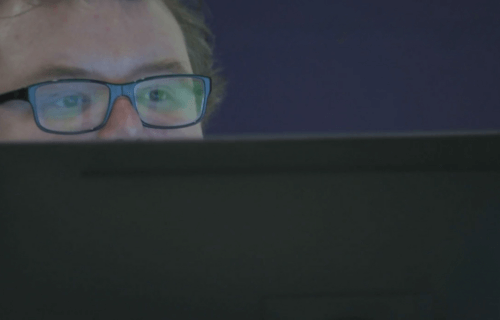It was June 4, 2020, when I officially hit that burnout wall. At that time, I was the Digital Managing Editor and Acting Digital Director at CBS Philly. Our Digital Director was out on maternity leave. The previous weekend, I worked a total of 24 hours due to the George Floyd protests in Philadelphia, where, unfortunately, some turned violent and stores in parts of the city were looted. After the weekend protests that Monday, the news was breaking live when our chopper caught Philadelphia Police tear-gassing protesters on I-676. Videos and images showed the protesters essentially being pushed up against a fence and trapped.
On top of all that, we were dealing with a deadly global pandemic that forced us to work at home. It was terrifying. Every day, there were multiple press conferences at once, and my office was shorthanded. I was endlessly covering stories of people getting sick and dying, medical professionals not having enough personal protective equipment, citizens not having enough masks to go out, or not having cleaning supplies and toilet paper. I was living on my own in Philadelphia and only left my apartment once a week to go grocery shopping. I didn’t see my family in person for the first three months of the COVID-19 pandemic, and it would be over a year until I saw a friend in person after getting vaccinated.
I was always told never to take work home, but that was impossible since I was working remotely. The stress was overwhelming. I couldn’t get away from constantly covering death. It was a nightmare version of “Groundhog Day” with no Bill Murray.
On that fateful day of Thursday, June 4, the 5 p.m. newscast was about to start when I was working on a story. All of a sudden, I started feeling dizzy and light-headed. I finished the story and emailed my digital team and other newsroom managers that I wasn’t feeling so great and logged off an hour early. As soon as I did that, it all came crashing down. I just started crying and couldn’t stop. To this day, I can still feel that feeling. I broke down for about five minutes and ended up napping for a couple of hours. What I didn’t realize at the time, it would be the first of many panic attacks I would suffer.
I called out sick that Friday, but I still had to work a few hours because my general manager and news director were emailing me. But this is what I signed up for, right? Being a news manager, you never truly get a day off. There’s something always breaking, something always going wrong, something happening where if it doesn’t get fixed immediately, the world is going to end, at least, according to higher-ups.

The digital director returned from her maternity on Monday, June 8, thanked me for the job I did, and told me to log off and take the two-week vacation I had planned. That’s what I did. I ended up going back to my parents, who live close by in New Jersey, to spend time with them.
Even though it was great not to be stuck in a one-bedroom apartment in the city and be out in the open again, I still didn’t feel right. As it grew closer to the time I was supposed to go back to work, I would start getting more anxiety-riddled and depressed. The day I was set to return to work, I physically and mentally couldn’t. I was legitimately petrified. I talked to the digital director and human resources manager, openly weeping on the phone with them. They were very caring and concerned for my mental health. It was then that I would go on my first short-term leave.
During that time, I ended up moving back in with my parents after being diagnosed with depression and anxiety. I couldn’t be by myself anymore. I was broken. I was living scared — about the pandemic and work. I honestly couldn’t handle life. If it weren’t for my parents, I honestly wouldn’t be here today.
I would see my therapist weekly and take medication daily. I would have random panic attacks, and many times, I would sleep 12 hours or more. To me, it felt easier not to deal with reality if I just slept it away. Definitely not the healthiest thing to do.
I was lucky enough to still be getting my full paycheck while I was on leave, but after three months, my pay would’ve been cut, so I decided to go back in September to my job. Also, a part of me felt like I had abandoned my team during one of the toughest moments in human history. However, my director and web producers welcomed me back with open arms, which made me feel greatly appreciated.
My first day back was Monday, Sept. 14, and it was relatively quiet. I was playing catch-up on everything that happened, going over things that I needed to know and was just copy-editing stories throughout the day. The next day was essentially the same. When Wednesday rolled around, however, something happened. An hour into my shift, I had a massive panic attack. What caused it? My work email notifications. The constant dings of emails triggered me and caused me to absolutely break down. I took the rest of the week off and returned again the following week.
It was essentially like that for me at CBS Philly for several months. There were days when I literally couldn’t get out of bed. There were days when I didn’t feel comfortable working on certain stories. Simply put, I was scared to work.
My second short-term leave — and the one that ended my news career — occurred in early 2021. My digital director told me she would be going on maternity leave over the summer and asked me if I thought I could handle being acting digital director again. I immediately said no. Even though times were different by then, my mind raced back to what happened the year prior, and I couldn’t fathom living through that again.
After talking with my bosses, it was decided that I should go on my second short-term leave. This time, however, I and everyone else knew I wasn’t going to be able to come back. I couldn’t do the job any longer. I couldn’t work in news any longer. I was completely and utterly burned out. It wasn’t fair to them to try to continue working, and more importantly, it wasn’t fair to me.
It was then I became a statistic. According to a survey by the Center for Innovation and Sustainability in Local Media at the University of North Carolina Chapel Hill’s Hussman School of Journalism and Media, 75 percent of journalists under the age of 45 have suffered from work-related and personal burnout. I became one of them.
“Burnout is the psychological response to chronic work-related conditions that affects both mental and physical health,” the survey reads. Signs can include constant fatigue, diminished interest in work, reduced performance, and feeling negative or cynical.
“It’s probably not surprising to a lot of people in the field, but it definitely should be something that’s dealt with and not thought of as OK,” survey lead Elizabeth Thompson, a local news researcher at the center, told Poynter. “Having a large number of people experiencing burnout is not sustainable.”
Up until the time I left news in 2021, I had worked in the industry for over 15 years. I started as an intern and production assistant for NBC10 Philadelphia in 2004. After that, I would go on to work at Fox News Radio as an audio newsgatherer and foreign editor/morning producer starting in 2007. I would move to FoxNews.com as a news and sports editor in 2009 before heading to CBS Local as a production manager (2011-2015), CBS New York as a digital news/sports producer (2016), and CBS Philly as a digital managing editor (2016-2021).
I wasn’t blind to the fact that working in the news would have a detrimental effect on my work-life balance. I missed holidays, birthdays, and even canceled dates because of my schedule or breaking news.
I would have the occasional breakdown at those other jobs — whether it be about the lack of pay, the way bosses were treating me, or the amount of work to cover, which felt impossible at times. Despite all that, I always plowed ahead because news was the only thing I knew how to do. I didn’t realize it at the time, but they were seeds that were being planted for my complete burnout.
“I struggled with (burnout) throughout my whole time working professionally as a journalist,” Thompson told Poynter. “I think it’s so pervasive that it’s been kind of normalized. I didn’t really even realize when I was struggling that that wasn’t normal or good for me.”
Nearly three-quarters of burned-out journalists surveyed said they’ve thought about quitting their current jobs. Over half of those actively looking for new gigs are considering leaving the journalism field altogether.
What can newsrooms do to combat burnout? Top responses from the survey included:
- Higher pay
- More support from leadership
- Better work-life balance through set schedules
However, there was one local news station that took a groundbreaking approach to tackling burnout — they all took the day off. In 2021, KATU-TV in Portland, Oregon, had a “No News Monday” so newsroom employees could attend a seminar to address job-related trauma and stress. The morning and afternoon shows ended up being pre-empted.

Every newsroom in America — whether local or national — should do this once a year. If they want to keep talent happy, motivated, and fresh, it’s in their best interest to take care of their mental health. If not, burnout is just going to get worse for journalists, which will affect the quality of news people get and, in turn, affect the big corporations who own these outlets.
After leaving the industry, I ended up deleting all my news apps on my iPhone (I still have sports news apps like ESPN and The Athletic). I only watch an hour of news, at most, a day — half-hour of local news and half-hour of national news. Even better, I’m not as numb to the news as I used to be.
Do I regret working in news? Not at all. I made countless lifelong and best friends. I covered history-making events which I will remember forever — like President Barack Obama’s inauguration and the Philadelphia Eagles winning their very first Super Bowl. Despite what happened, I wouldn’t trade that for anything. However, would I recommend future college graduates to go into the news industry? No.
As for me, I’m in a much better place today as the lead project manager for StudyFinds and Editor of HobbyListings.com. Collecting baseball cards is a passion of mine, and I’m truly excited to grow the site. I am still taking steps to care for my mental health. It took me a good two years to get back on my feet, but I feel I came out of it wiser. I now know what my limits are. I won’t push myself anymore to the brink of exhaustion. More importantly, I’m not making work my life anymore.
If you are feeling the way I have or know someone who is, please reach out to medical professionals. There are so many people out there who will help. SAMHSA’s National Helpline is a free, confidential, 24/7, 365-day-a-year treatment referral and information service (in English and Spanish) for individuals and families facing mental and/or substance use disorders. Call1-800-662-HELP (4357) if you need to speak with someone.

You are sitting at home, reading and typing without any danger and “It was terrifying.”?
So you had been promoted way above your ability to perform.
The greatest problem in management is that many (all) people want to be promoted and rewarded far beyond their capability.
How do you tell people ‘you are a store clerk, that’s it (and oh by the way, you have just been replaced with a bar-code reader)’ without hurting their feelings when all their life they have been told how wonderful, unique and special they are?
This shit happens in every business when employees move from ‘supervisor’ to ‘manager’, 70% can’t make the transition and breakdown, or worse, they don’t breakdown and cause the whole unit to fail and be dysfunctional.
You sound like an “assistant”, perfectly capable and productive as long as someone else carries the decision-making and responsibility. Good for you.
“A man should know his limitations.”
Dirty Harry